Method and research - Cultural training
At ConnectingCultures we always focus on transforming knowledge into concrete actions that can be implemented in everyday life. Therefore, developing skills and interactive training is the focus of our cultural training. We base our cultural training on current research, and we are continuously working with the research community.
READY – a Cultural Training Programme
The founder of ConnectingCultures, Signe Ørom, is working alongside her consultancy work, on a research project at the University of Copenhagen in collaboration with CIRCD and professor Mie Femø. The research project centres around developing an innovative cultural training program, which creates strong global managers and employees who are able to act culturally intelligent in their international and cross-cultural collaborations.
The four following development potentials are defined based on the diagnosis and rooted in the theories presented below.
The new Culture Training Programme READY focuses on
Research-based knowledge – the R in READY ensures that research-based knowledge is integrated in the cultural training programs. Research-based knowledge is used to frame, support and modify the experiences and assumptions that the participants have, and put them in to perspective.
Expertise – the E in READY stands for expertise with a focus on the development of competences, which means that this is a cultural training method that focuses specifically on training the participant’s competencies by consistently oscillating between ‘factual’ knowledge sharing to developing action-oriented competencies.
Adjustment – the A in READY stands for adjustment of the participant’s behavior, and hence this isn’t a “quick fix” approach, but a method in which the participant undergoes lengthy, in-depth training with the aim of ensuring that the newly acquired skills result in adjusted behavior.
DYnamic cultural understanding – the DY in READY stands for integrating a dynamic cultural understanding in cultural training and from there create explanatory models, which translate this dynamic cultural understanding to an clear and user-oriented form to ensure that the student can read and interpret cross-cultural interaction in a culturally intelligent manner and act on it.
Background for the project:
The reason for the project is two-fold. Firstly, there is a gap between the need for culturally competent employees in Danish companies operating internationally and the existing level of cultural competence for Danes. The second is based on our diagnosis of the existing cultural training, which has resulted in the formulation of four development potentials for a new and improved cultural training program.
The gap between needs and skills + optimization of the Danish export potential:
Cultural training in the form of workshops that imparts knowledge about different countries’ business culture is in demand and is offered increasingly in international and global companies in Denmark. The increased interest stems from the recognition that cultural and communicational skills are valuable in organisations(Ørom et al, 2016), which are increasingly working and trading across borders and continents. The new world balance with the BRICS countries (Brazil, Russia, India, China and South Africa) and Next 11 countries (Bangladesh, Egypt, Indonesia, Iran, Korea, Mexico, Nigeria, Pakistan, Philippines, Turkey and Vietnam) as the new economic centers has aroused great interest in these as potential export markets and / or manufacturing countries.
In the meantime, awareness of the cultural characteristics and barriers in these countries is limited (Ministry of Foreign Affairs et al 2012). All of 58% of employees in large and medium-sized Danish enterprises (n = 70) believe that cultural barriers are the largest or second largest barriers in markets outside the EU (Kromann- Reumert 2013: 21). The reason is that Denmark has a short history of export and collaboration with emerging markets (Mortensen, 2012) and therefore doesn’t have an accumulated knowledge of these markets from the past. At the same time, the new markets are experienced as being culturally / mentally further than the traditional export markets (Ørom et al, 2016). The existence of a need to develop cultural competencies in the Danish labour market is supported by a study made by the Ministry of Education. It points out that only 5% of the Danish population have high cultural competence (Hermann 2005). Cultural competence is obviously a difficult skill to measure and the Ministry of Education’s measurements which refer to 1) knowledge from education and the media, 2) knowledge through study abroad, 3) cooperation and interaction at work and in leisure (Hermann, 2005: 2), are not fully adequate to measure whether a person has cultural competence. However, they must still be considered as an indication that there exists a gap between the need for cultural competence and employees’ current skills in Danish companies with global activities and potential.
This is further accentuated by the government’s latest growth market formulated strategies that clearly targets specifically BRICS and other emerging markets and whose ambition is “to increase goods exports to emerging markets by more than 50 per cent.” (Emerging market strategies – Ministry of Foreign Affairs, without year)
Diagnosis of the existing cultural training
- The existing cultural training is predominantly knowledge-based cultural training that does not have enough focus on developing skills
- The existing cultural training consists of predominantly short courses without follow-up which reduces the likelihood of behavioral change
- The existing cultural training is predominantly based on a simplified understanding of culture, which risks cultural stereotypes
- The knowledge provided in the existing cultural training is often based on personal experience and less supported by research
WORKSHOPS, COURSES, LECTURES OR ONE-TO-ONE TRAINING?
We are happy to advise on which form of training is most relevant to you regarding diversity and unconscious bias. Read more here

- Focus on developing competencies
- Highly trained cultural experts and country specialists with experience in the country or the countries they are specialists in
- We always base the knowledge that we share on the latest research
- Part of a new research project on cultural training and its results

